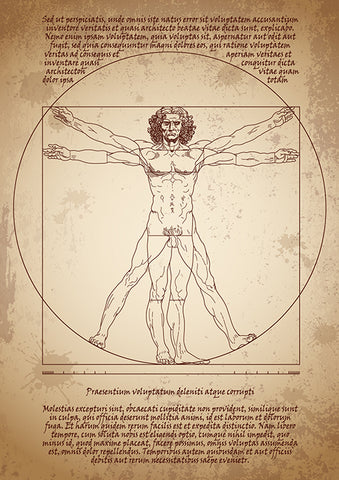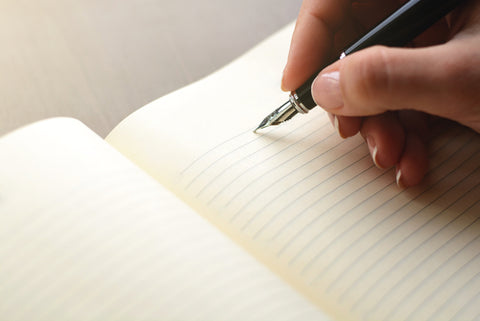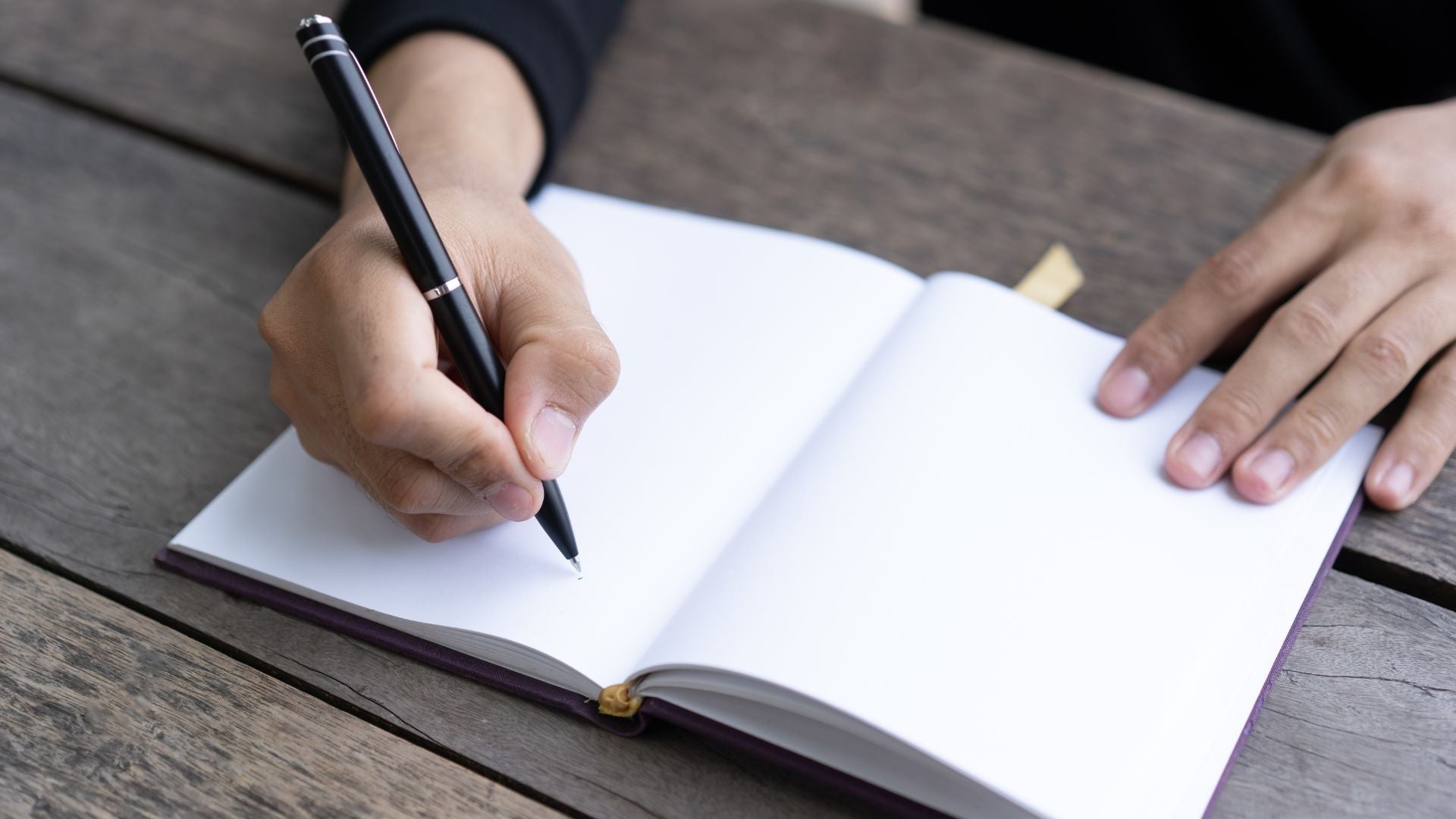Those of us who write with fountain pens know that what we choose to write with matters. Pick up a fountain pen and touch the nib to paper. Lines form into letters, letters into syllables, syllables into words and words into sentences. Our decision to write with a fountain pen, or to type on a keyboard can affect, even alter, the very nature of what we write simply because of the tools we choose to write with. Use a fountain pen instead of a keyboard and the tone, even the sense of whatever it is we wish to convey, changes. Who would write a personal letter on a computer? Use a keyboard to write a story, and it will turn out differently from a story written with pen and paper.
Writing by hand may not be a better method of writing than typing on a keyboard, but it is inherently different. At present, since most of us can both write and type, our preference for the pen or the keyboard is often determined by the task to be performed, or by convenience. However, our younger generation is writing by hand less and young people are typing more. Little time is spent teaching students how to write with pen and paper, and they are allowed to hold their pens and pencils so that their hands cramp and want to rid themselves of the pen or pencil they hold. Why?
What will happen to the written word once the keyboard has taken over? Will we lose the subtle nuances to stories hastily typed and not thoughtfully drafted by hand? Without pen and paper we will certainly lose the ephemeral drafts that were never meant to be saved at all—the raw lyrics scribbled onto a napkin in a coffee shop by the next John Lennon; the opening sentence to a short story jotted on a piece of lined paper by a fifteen-year-old future James Joyce.

We have seen them under glass in universities and museums: the early drafts and manuscripts written by the masters. We muse at how their ordinary script appears similar to our own, proving only that the quality of their penmanship has little to do with the quality of what is written. Nor does it prove that pen and paper will thrive when, instead, they are increasingly outdated tools for creative expression and communication. Let’s be honest: if our favorite lyricist or author had a choice, would he or she be sitting in a coffee shop with a pad of paper and a pencil, or would there be a laptop on the table instead?
I value the pen and paper, and feel pain watching my seventeen-year-old daughter complete a homework assignment with an inexpensive dollar store pen clutched like a club in her hand instead of being held between her fingers. I shake my head, not understanding how such a thing can occur in my own home. But it is not important to the world whether or not I understand the choices made by the younger generation, or whether or not I keep up with new technology. I wonder, though, if a laptop were available, would a pen only get in the way in today’s technology-driven world? If Bach were a seventeen-year-old today, what would he write with?
Why I still write with a fountain pen

When writing in my journal nothing less than my favorite fountain pen will do. Nothing communicates better with ink and paper. At the end of most days, I look forward to uncapping my fountain pen and touching its nib to a clean white page. As I write about the thoughts and insights I've collected throughout the day, I also watch as lines form into letters, letters into syllables, syllables into words, and words into sentences, and I'm content to be alone for a time with only my pen, some ink, and my journal for company.
Our thanks go to Paul Erano - author, fountain pen aficionado, and curator of FountainPenJournal.com where you can find a treasure trove of information, history and the latest in all things related to the fascinating world of fountain pens! A beautifully formatted periodical is also available for subscribers. This is an updated version of Paul’s essay that first appeared volume 6 No.1 of Erano's Quarterly Pen Review. Find the loveliest collection of fountain pen friendly journals right here, featuring beautifully cut pages with deckled edges (95gsm).
We welcome readers to post comments below.









8 comments
Dr. Phil (different guy)
My fountain pen makes invitations more festive, thank you’s more sincere, and condolences more heartfelt. Sharing what I have written with a fountain pen brings me closer to my reader than any other medium. Hand written notes are so important, the fountain pen elevates what I am communicating.
Duncan
We’ll written; enjoyed your thoughts. Question: Did you write it with a fountain pen? Thought: one of the consequences of writing with a fountain pen is that it often slows the writer down a bit in the writing process. And, in this busy, hurried, not very calm world today it is very healthy to “slow down.”
Paul
I don’t have many fountain pens, mostly ballpoints and rollerball. But I have written journals for many years. Using a fountain pen at work was not justified, so ballpoint pens were my go to pen.
Since retiring, I have gravitated to fountain pens. Love the feel and feedback I get. My journals have gotten more detailed. I am taking more time writing, more concerned with how my handwriting is legible and more classical cursive writing than part script, part printing. Love how the words flow out of the fountain pen.
Joshua
I think that we are going to enter a refining period, or have entered it rather, when speed writing with a bic stick (yuck) will no longer be needed, since the computer does it so much better. The flip side of that is the computer is not personal, it is public. So, fine writing will be more desirable as a place to keep our private thoughts and work out the emotions of the day. Thus my prediction is that writing will both go down and up, it will become a luxury and not a task, a luxury that is affordable to all and can bring people together, while still allowing privacy. The computer and fountain pen, living together in harmony, while the bic stick fades away, unwanted.
Honnalli. G. Dawoodkhan
Fountain pens are the pens of the times, the writings from which will remain in times to come in the future bringing the Legacy of the times in which their messages were conveyed through them.